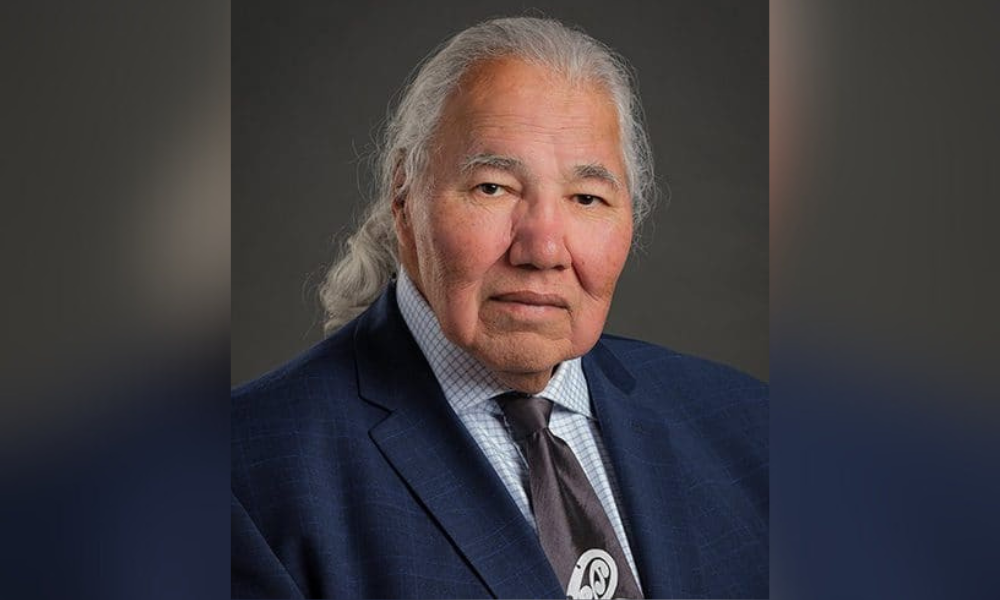
The firm, previously Cochrane Saxberg, rebranded in October to reflect Sinclair's contributions

In June of 2020, Harold (Sonny) Cochrane received a call. On the line was Murray Sinclair, who was then a member of Canada’s Senate. Cochrane was gobsmacked: Sinclair told him he was planning on leaving his senator role and wanted to join Cochrane’s firm, Cochrane Saxberg, at the time the largest Indigenous law firm in Manitoba.
“I remember when I hung up the call… I immediately notified some of my partners,” Cochrane recalls. “I said, ‘you're not going to believe who I just talked to.’”
The firm quickly arranged to meet with Sinclair, and the resulting decision to take the senator on board as general counsel was a no-brainer, Cochrane says. “His impact on our firm, of course, was immediate,” Cochrane says. “And it will continue for many, many years.”
When Cochrane Saxberg announced Sinclair’s arrival two months later, Cochrane likened the hire to having “Wayne Gretzky joining your hockey team.”
More than four years later, on October 24th, the firm would officially rebrand as Cochrane Sinclair – a reflection of Sinclair’s deep influence on the firm, not least of all with respect to the kind – and scale – of the work it does.
Sinclair had the opportunity to review the rebrand, telling Cochrane he was happy with the direction and was looking forward to returning to the office and seeing his colleagues the last time the two lawyers spoke on the phone in September.
But he never did return to the firm, Cochrane said. Sinclair passed away on Monday morning. He was 73.
Sinclair’s career was prolific. Born in 1951, Sinclair was a member of the Peguis First Nation and grew up north of Winnipeg, in an area that was known as the St. Peter’s Indian Reserve until the early 20th century. His mother died when he was a young child and he was raised by his grandparents. Sinclair’s father and grandmother were residential school survivors.
In 1979, Sinclair received his law degree from the University of Manitoba. Less than a decade later, he was appointed associate chief judge of the Provincial Court of Manitoba, becoming the first Indigenous judge in the province’s history.
Sinclair went on to chair Canada’s Truth and Reconciliation Commission with Chief Wilton Littlechild and Marie Wilson. After the commission completed its report in 2015, documenting the stories of survivors of Canada’s residential schools, Manitoba’s Indigenous community nominated Sinclair for an appointment to Canada’s Senate, which he joined in 2016.
These accomplishments form the backdrop for Cochrane’s description of Sinclair as a “hero” and “beacon of hope” for many people in the Indigenous community when they began working together in 2020. In the four years since, his influence continued to grow. While Cochrane Sinclair’s mandate has always been aimed at addressing issues impacting Indigenous peoples, Sinclair’s arrival at the firm “accelerated that process and brought us much further along,” Cochrane says.
He added, “Having Murray Sinclair's counsel and having him join us, it just brought us to a different level of being able to undertake that type of work.”
This development is largely reflected in the class actions the firm has filed in recent years. A lawsuit the firm filed against the government of Canada in 2023, for example, took aim at Canada’s First Nations child welfare system, alleging the government “violated the rights of First Nations to raise their own children, preserve their languages, and pass on their spiritual and cultural traditions.”
In other class actions filed on behalf of Lake Manitoba First Nation and Fisher River Cree Nation, the firm alleged the government of Canada failed to meet annuity payment amounts mandated under two treaties.
These lawsuits are “part of Murray's influence on our firm,” Cochrane says. Cochrane Sinclair’s headcount has grown with its workload, tripling in size since the firm’s launch. “Truth be told, if we had another 10 good lawyers, we could probably use them now – we're that busy,” Cochrane says.
Under the Indian Act, Cochrane says, “it was illegal for my grandparents to hire lawyers to advocate for their rights. If they wanted to become a lawyer, they would have had to give up their Indian status. And yet, two generations later, here we are.”
“It really is amazing to me that we're able to undertake this work,” Cochrane adds. “I do wish my grandparents were here to see it, because I know they'd be proud, as I know Murray was proud as well for being part of a team to take on these historical wrongs.”
But Cochrane says he felt Sinclair’s influence in other ways as well. In the course of addressing Canada’s history, Sinclair often faced backlash, including threats.
“The one thing about Murray is that he was never angry,” Cochrane says. “He was bothered, I'm sure, but he was not angry. He just said, ‘That's part of the process when you're when you take a leadership position in these issues. It comes with the territory.’ That’s one of the important lessons I've learned from him.”
Cochrane added that Sinclair’s absence at the office would be felt.
“To have Murray Sinclair sitting next to you in an office, and to be able to knock on his door and to pick his brain, to ask for his advice, to seek his counsel – I was so very fortunate to have that,” Cochrane says. “I'll miss that tremendously.”